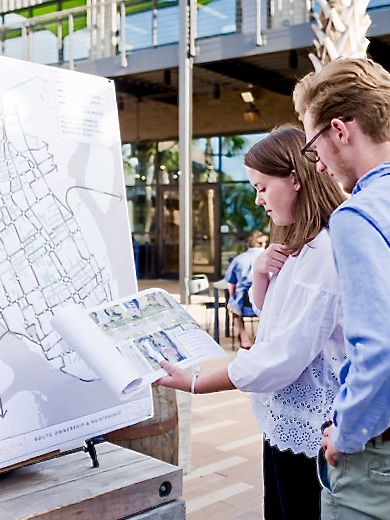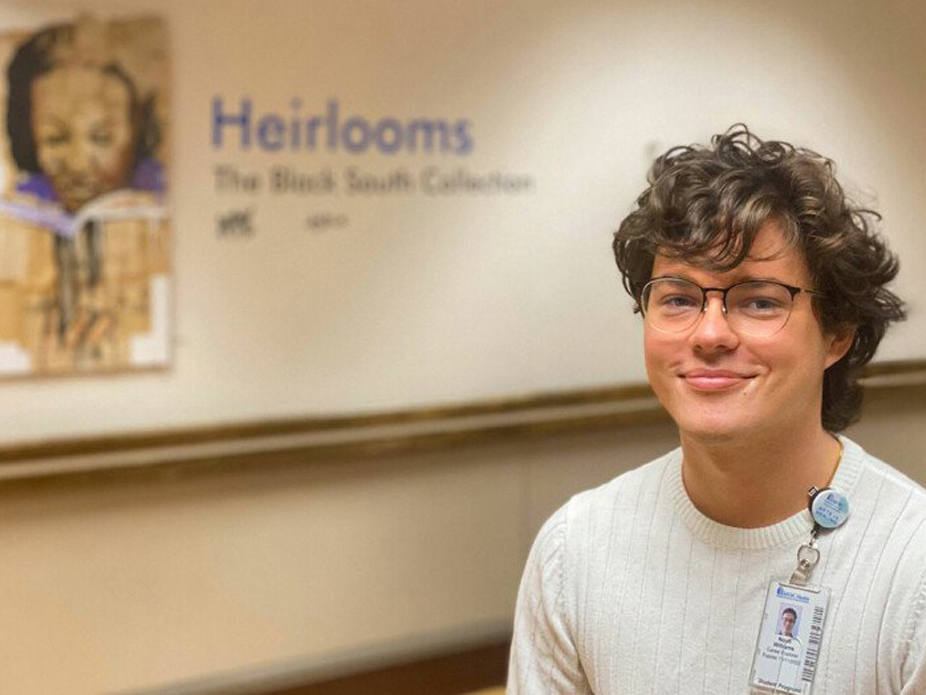Department of Art & Architectural History
The College of Charleston's Department of Art & Architectural History is one of the most comprehensive in the Southeast. Our large and diverse faculty allows us to provide expertise in all areas of art history while maintaining our teaching focus on you - our undergraduate students.
We offer courses in all areas of art history and include a program in Historic Preservation and Community Planning within the department.
Charleston is a great place to study art and architecture. Our city is our classroom, and our majors engage with art history, influential artists, design concepts and styles every day, right here in Charleston.
The department provides additional learning opportunities through academic and travel scholarships, internships and study abroad.
In addition, your studies in Art & Architectural History will prepare you for your eventual career. Whether you go on to a career in art history or continue your education in business or graduate/professional schools, you'll gain skills and experience in writing, critical thinking, problem-solving, cultural understanding and aesthetic awareness.
Student Opportunities
-
Scholarships
The Department of Art and Architectural History annually offers more than $10,000 in academic and travel scholarships.
Academic scholarships are available to both art history and preservation majors to help with tuition.
In adidtion, we offer generous travel scholarships to help art history and architecture majors study in programs in the U.S. or abroad with our faculty or in affiliated programs.
Albert Simons Memorial Scholarship (Renewable)
The Albert Simons Scholarship is offered to an outstanding major with an interest in either architectural history or historic preservation.
The Girardeau Travel Scholarship
Awarded each Spring Semester for travel/study abroad, usually during Maymester and Summer for Art History and HPCP Majors.
Lindstedt Scholarship in Historic Preservation and Community Planning (Renewable)
This scholarship is awarded to a rising junior or senior concentrating in Historic Preservation and community Planning.
Elizabeth Anne Eady Memorial Travel Scholarship
This scholarship established by the friends and family of Elizabeth Anne Eady a former student of the College of Charleston, in celebration of the life of an extraordinary young woman. Because her own travels and study in Europe was so important to Liz, the scholarship is designed to help other students have a similar educational and cultural experience. Awarded each spring for travel during Maymester through summer.Wattle & Daub Travel Award
Awarded for international travel.Michael W. Haga Endowed Art History Award
Search Departmental Scholarships
The fund provides awards Art History majors who have demonstrated success in Art History through coursework, research and/or contributions to the community. -
Internships

Gain experience (and college credit) doing what you love.
Internships allow you to transfer your classroom knowledge to work experience. You'll network and make connections, develop your skills and get a boost to your resume.
Through our internship coordinator, we can help you find internships in Charleston’s many museums, historic organizations and galleries. -
Study Abroad
We encourge you to enhance your cultural awareness in art history and architecture and study abroad.
Students may take courses with our faculty (recent trips included Mexico and Japan), or explore affiliated programs for locations throughout Europe, South America and Asia.


Internship to Opportunity
Arts management/art history double major Noah Williams turned his internship into an Art Curator/Collector real-world job. "If you really invest yourself and are passionate about the work, there’s a strong chance that you can turn your internship into something larger. That’s what happened for me.”
Read More About Noah